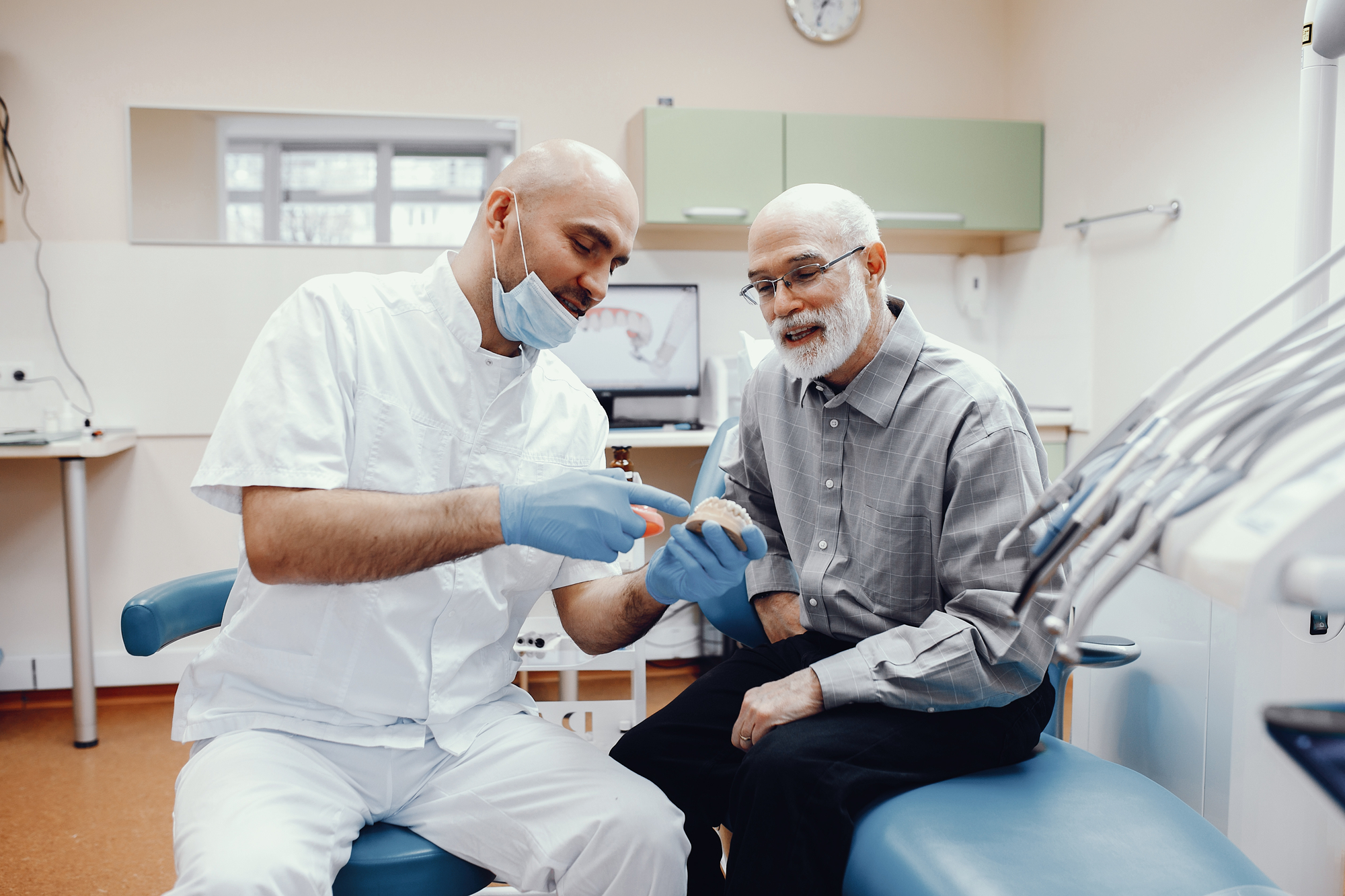If you’re having trouble getting patients to accept treatment, it might not be because of the reasons you think. Many times, all patients need in order to say yes to the treatment they need is influence.
We had the honor of working with Dr. Christopher Phelps aboard the 2019 Smiles at Sea cruise. Dr. Phelps is an expert in marketing your practice and differentiating it from your competition. Along with motivational interviewing, one of the things he speaks about is applying Dr. Robert Cialdini’s 6 Principles of Influence to dentistry.
Cialdini’s principles represent research-based, cross-cultural, and ethical ways to guide your patients toward saying yes to the treatment they need. Here are the six principles and how you can start using them to help your patients say yes to the care they need.
1. Reciprocity

Reciprocity involves giving to a patient before asking them to move forward with treatment. A simple example is a gift. Giving a gift makes people feel compelled to reciprocate.
There are five rules to maximize the power of the gift:
- Always be the first to give.
- The gift should be as significant to that person as possible.
- The gift should be unexpected.
- The gift should be given at the same time you make the request.
- The gift should be given by the same person who makes the request.
Oftentimes, a patient will become what Dr. Phelps calls a “missed opportunity.” A missed opportunity is a reactive patient who comes in for treatment and leaves without setting up another appointment.
They’re handed off to the schedule coordinator and don’t set up a time to come back in. Dr. Phelps suggests hygienists or assistants should offer a small gift to patients to thank them for coming in for a consultation while requesting that the patient return for treatment before handing them off to the schedule coordinator. Depending on the treatment plan, you could offer a small gift, such as a coffee gift card, or a choice among larger gifts, such as free teeth whitening, a Philips Sonicare AirFloss, or a Sonicare electric toothbrush. This will compel patients to reciprocate by booking an appointment for the care they need.
2. Consistency
Cialdini’s principle of consistency says that people want to keep their public behavior consistent over time. If they make a promise, they want to keep the promise. In the context of dentistry, you can get patients to be more likely to say yes by having them make a small commitment to their care.
For example, instead of just telling a patient to do something, ask them what they can commit to. Dr. Phelps suggests making patients active participants in their treatment plan as an example of consistency in action. If flossing is on their treatment plan, he suggests, have them floss in front of you and then praise them for a job well done. Then give them a sticky note and ask them to write down a reminder to floss. When they do, ask them to put it on their mirror. These small, public acts will go a long to create a true commitment to their oral health.
3. Social Proof

People are likely to be influenced to act when large groups of people make the same decision or when they can relate to people who have performed the action before.
With dental implants, for example, you could show before and after pictures of other patients who they relate to. You can show them video testimonials from patients who got implants. You can share information about decisions most people make in their circumstances.
For example, if patients understand that most patients in their circumstances will finance a dental implant to avoid issues spreading to other teeth, they are more likely to move forward with treatment. This is especially true when patients are happy with the result. (e.g., “Implants are a big investment, but patients who use financing to fit them in their budget are happy with the result.”)
STOP GENERATING LEADS, GET PATIENTS INSTEAD
Stop chasing unqualified leads and wasting your valuable chairtime. Learn how to fill your operatories with patients who are pre-qualified and serious about moving forward with your high-value treatment.
4. Liking
Be likable. Your patients will be much more likely to move forward with treatment if they like you. There are three important factors that determine whether we like someone.
- People who are similar to us
- People who pay us compliments
- People who cooperate with us towards mutual goals
To get someone to like you enough to say yes, look for areas of similarity that you share with them and genuine compliments you can give before getting down to business.
5. Authority

People follow the lead of credible, knowledgeable experts. Thus, it can help patients feel confident about saying yes if you signal to patients what makes you a credible, knowledgeable authority before you offer treatment.
It’s not wise to boast about what makes you credible and knowledgeable yourself. But you can let others convey that for you. Use reviews and testimonials to convey expertise (and offer social proof) or even hang your doctorate degree on your wall to let people know you are an expert.
6. Scarcity
Scarcity is one of the most persuasive principles of influence. In short, people will be more likely to make a decision when they believe the decision will go away.
With dentistry, you could do this by calling patients when you have an opening on your schedule, offering them a special if they take that appointment time. You could also point out what they stand to lose by not moving forward, such as losing the tooth and having other teeth shift. Thus, their opportunity to solve their problem with a simpler procedure will go away if they don’t move forward.
Are you helping your patients say yes to the treatment they need?
When you can help patients move forward with the care they need by using these six principles of influence, everyone benefits. Your patient benefits for all the reasons it is important to maintain optimal oral health. You benefit from increased production and having happier patients, who are more likely to refer you to friends and family. Even your future patients will benefit because you will perform more procedures, get more experienced, and have more resources for upgrading technology and adding top-quality team members.
Want to learn more about persuasion principles and using the science of influence to maximize case acceptance? Check out Dr. Phelps’ programs.
And if you want help putting these principles to work in attracting and closing more implant cases book a strategy call with the experts at Driven Dental Implant Marketing today.
